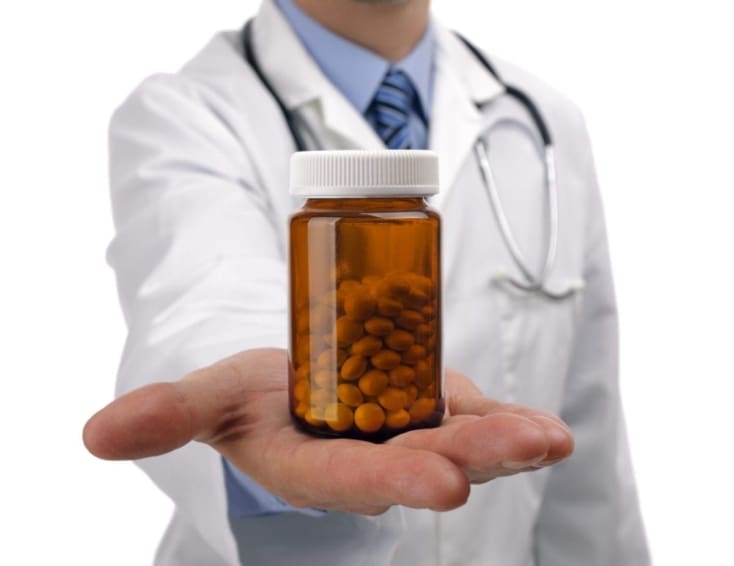
Your body produces both good and bad cholesterol. Lowering your bad cholesterol can reduce your risk of having a heart attack or stroke. Bad cholesterol is also called LDL, or low-density lipoprotein. Lifestyle changes (diet and exercise) can improve your cholesterol level. Your doctor may ask you try these changes for 6 months to 1 year. If they don’t help, your doctor may prescribe medicine to lower your cholesterol.
Path to improved health
Even if you take cholesterol-lowering medicine, it’s important to maintain your lifestyle changes. Eating healthy and being physically active can make your medicine more effective. Your doctor can give you tips on how to make healthy food choices. They also can suggest how to include physical activity in your daily routine.
Your doctor will likely prescribe cholesterol-lowering medicine for you if:
- You previously had a heart attack, stroke, or have peripheral arterial disease (PAD)
- Your bad cholesterol (LDL) level is 190 mg/dL or higher
- You are 40-75 years old, are at high risk for heart disease or stroke, and your LDL cholesterol level is 70 mg/dL or higher
What are some common cholesterol-lowering medicines?
Several types of medicine are used to treat high cholesterol levels. Your doctor will decide which type of medicine is right for you. They may prescribe more than 1 of these drugs at a time.
- Statins (also called HMG-CoA reductase inhibitors) slow down your body’s production of cholesterol. These drugs also reduce cholesterol buildup from your arteries (blood vessels).
- Resins (also called bile acid sequestrants) are lipid-lowering agents in your body that bind to bile acids. Bile acids are made in your liver and help with digestion. When resins bind to the bile, the body gets rid of them and prompts your body to use excess cholesterol to make more bile acids. This lowers your LDL cholesterol level.
- Cholesterol absorption inhibitorsreduce the amount of cholesterol that is absorbed by your intestines. This type of medicine is often prescribed in combination with a statin.
- Fibrates help lower your cholesterol by reducing triglycerides (fats) in your body. Fibrates are also called fibric acid derivatives. They also increase your level of good cholesterol (also called HDL, or high-density lipoprotein).
- PCSK9 inhibitors block a protein (called PCSK9). Blocking this protein helps your liver get rid of LDL cholesterol from your blood.
Things to consider
Like all medicines, these drugs can cause side effects. However, the side effects are rare and usually not severe.
Common side effects of cholesterol-lowering drugs include the following:
- Diarrhea or constipation
- Abdominal pain, cramps, bloating, or gas
- Nausea
- Vomiting
- Headache
- Drowsiness
- Dizziness
- Muscle aches or weakness
- Flushing (skin turning red and warm)
- Sleep problems
Tell your doctor as soon as possible if your side effects become severe.
What is a drug interaction?
If you take 2 or more medicines at the same time, the way your body processes each drug can change. When this happens, the risk of side effects from each drug increases. Plus, each drug may not work the way it should. This is called a drug-drug interaction. Vitamins and herbal supplements can also affect the way your body processes medicine.
Nutrients in certain foods or drinks can also prevent your medicine from working the way it should. They can also make side effects worse. This is called a drug-nutrient interaction.
Drug-drug interactions and drug-nutrient interactions can be dangerous. Tell your doctor everything you are taking. This includes all over-the-counter (OTC) and prescription medicines, vitamins, and herbal supplements. Don’t take any new medicines without first talking to your doctor. This includes any new OTC or prescription medicines, vitamins, or herbal supplements.
It’s important to take medicines exactly as your doctor tells you to. Ask your doctor whether you need to avoid any foods or drinks while using your cholesterol-lowering medicine.
Questions for your doctor
- How often should I have my cholesterol checked?
- What kind of side effects may I have while taking the medicine?
- What if I miss a dose of the medicine?
- Does taking this medicine mean that I can eat whatever I want?
- Do I need to also limit salt in my diet for heart health?
- Can I drink alcohol while taking this medicine?
- Will I always have to take medicine to lower my cholesterol?
- Can any supplements or non-medicine options help to reduce my cholesterol?
Resources
Centers for Disease Control and Prevention: Cholesterol-Lowering Medicines
National Institutes of Health, MedlinePlus: Cholesterol Medicines
![]()
Copyright © American Academy of Family Physicians
This information provides a general overview and may not apply to everyone. Talk to your family doctor to find out if this information applies to you and to get more information on this subject.







